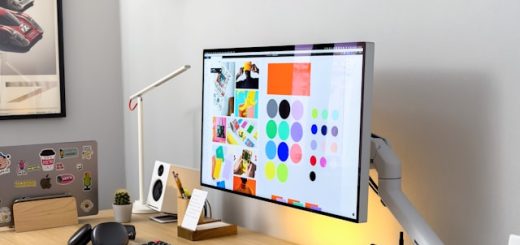Should You Blog Anonymously or Use Your Real Name?
One of the decisions you face when starting a blog is whether or not to use your real name. It can be a tricky decision, because there are pros and cons to whatever you decide.
You can choose anything from ‘no anonymity’ through to ‘full anonymity’. For instance, you could:
- Blog under your real name and promote it prominently on your blog. This is what I do ProBlogger. You could even take it to the extreme and use your name as your actual domain name (and thus the name of your blog).
- Blog under your personal name without promoting it. This is what I do on Digital Photography School. My name is on the About page and on the articles I’ve written, but that’s about all.
- Blog under an alias, or use just part of your name. The alias you choose could be a pen name (such as “Johnny B. Truant”), your maiden name or a former name. It could be something that could never mistaken for your actual name (such as “The Blog Tyrant”). You could also use just your first name or your surname (such as “Mrs Woog” from Woogsworld).
- Blog without using any name. Some bloggers keep their identity a secret, which they do for all sorts of reasons.
Which is the Best Option?
There’s no ‘right’ choice. What you go for depends on what you’re comfortable with and what suits your blog.
My blogging on ProBlogger has always had a personal tone. It includes anecdotes about my life, videos of me, and so on. But while I don’t hide who I am on Digital Photography School, I don’t go out of my way to make the blog about me either.
When you’re considering whether to be anonymous (or how anonymous to be), you might want to consider these factors.
Six Factors to Consider When Deciding Whether to Use Your Real Name
#1: Your Topic and Type of Content
Some topics invite transparency, while others don’t. And some types of content are more personal than others. A “how to” style site such as Digital Photography School can be more anonymous than a site that focuses on personal stories.
#2: Your Medium (Text, Audio, or Video?)
If you’ll be writing posts and using stock images then it will be relatively easy to hide your identity. But if you plan on doing videos or podcasts, or even using personal photos in your posts, it will be harder to remain anonymous.
#3: Your Long-Term Plans
While you may not know how you want things to be in a few years’ time, your long-term goals for your blog could determine how anonymous you can be.
For instance, if you want to build an online platform to help sell books you’ve written, you may well want to use your own name. But if you want to build a blog to sell in a few years, or that will have multiple authors, you might want to be anonymous (or at least keep the focus on the content instead of on you).
#4: Your Monetization Methods
Some monetization can easily be done anonymously. For instance, you can monetize your blog through ads or affiliate links without ever using your name or even a pen name.
But if you want to make money as a consultant, speaker or coach, your readers will need to know who you are. And if you plan on becoming an influencer, you’ll need that personal connection. Even selling ebooks or other digital products will be easier if your audience feels they know who you are.
#5: Your Personality
Some bloggers enjoy the limelight. They love featuring in ‘Top bloggers’ lists and getting mentioned in the media. But it will be hard to become this popular if you don’t blog using your name.
Other bloggers are happy to avoid the spotlight, and may feel quite daunted by this kind of recognition. If that’s you, then blogging anonymously or under a made-up name might suit you best.
#6: Your Privacy or Safety Needs
Depending on your circumstances and your topic, it may be vital for you to remain anonymous..
I know a number of bloggers who avoid using their real name for various reasons:
- a health blogger who feared revealing who she was would jeopardise her career
- a family lawyer who didn’t want her clients and colleagues finding her online
- a blogger who didn’t want to be identified by an abusive ex-partner
- a blogger who wrote about an embarrassing health condition.
If you’re still not sure, here’s one thing to keep in mind: you can always add your name, but you can’t take it away.
Plenty of bloggers start off writing anonymously and then begin to use their name (such as Ramsay Taplin, who began blogging as “The Blog Tyrant”). And there’s nothing stopping you from doing the same—starting out anonymously, or using just your first name and not putting photos on your site, and then being more open about your identity over time.







